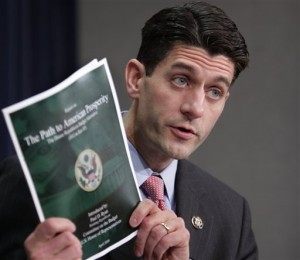 I’ve been mulling over a column by David Brooks on “The Politics of Solipsism” for the past couple of weeks. What he wrote is nervy to say the least. He argues that America has lost the republican virtues on which it was founded, namely, the curbing of self-centeredness in the interest of the public good. I too am a fan of Cicero, but Brooks fails in one of the primary republican virtues by not forthrightly acknowledging that Republicans, the adherents of Ayn Rand, are the ones who have most blatantly deserted these same virtues. Self interest has center stage on their platform.
I’ve been mulling over a column by David Brooks on “The Politics of Solipsism” for the past couple of weeks. What he wrote is nervy to say the least. He argues that America has lost the republican virtues on which it was founded, namely, the curbing of self-centeredness in the interest of the public good. I too am a fan of Cicero, but Brooks fails in one of the primary republican virtues by not forthrightly acknowledging that Republicans, the adherents of Ayn Rand, are the ones who have most blatantly deserted these same virtues. Self interest has center stage on their platform.
Brooks praises Truman and Eisenhower, but he fails to mention that it was President Kennedy who repeatedly challenged Americans and asked them to sacrifice. He urged us to go to the moon because it was tough, not because it was easy. And when my father, Robert Kennedy, was running for president and medical students asked him who would pay for more health care for the poor, he quickly answered, “You will.”
 Contrary to the Republican philosophy, summed up by Ronald Reagan, that government is the problem, John and Robert Kennedy considered politics an honorable profession and affirmed that government was the place where we “make our most solemn common decisions.”
Contrary to the Republican philosophy, summed up by Ronald Reagan, that government is the problem, John and Robert Kennedy considered politics an honorable profession and affirmed that government was the place where we “make our most solemn common decisions.”
Both my uncle and my father knew that America is at its best when its citizens are willing to give up something for others. That was the spirit in which they committed themselves to public service. Ultimately they both gave their lives in the service of their country.
Like my father and my uncle, I believe that serving the public good is the essential republican virtue. In fact I led the effort to make Maryland the first and still only state in the country where community service is a condition of high school graduation. I did this because I believe that virtue comes from habits developed, not sermons given. Aristotle said, “we become house builders by building houses, we become harp players by playing the harp, we grow to be just by doing just actions.”
Republican governors are making their mark attacking public servants. They’re laying off citizens who exemplify republican virtues like teaching in inner city schools, fighting drug cartels, and rushing into burning buildings. Why? So that those who make outrageous salaries can pay lower taxes.
Brooks says that Republicans want growth, but I see no evidence that they want growth for anyone but the most well off. Where is the commitment to education, to infrastructure, to science?
Brooks commends Paul Ryan for sending the message that “politics can no longer be about satisfying voters’ immediate needs.” And yet Ryan would give the rich even more of a tax break at a time when our taxes are the lowest in three decades.
George Washington, whom Brooks also praises, would be surprised that the rich are being asked to shoulder less of a burden. He supported excise taxes that would fall disproportionately on the wealthy. When he went to war, he brought his wife, Martha, to share the hard, cold winter of Valley Forge along with him.
The wealthy have a special responsibility. From those who have been given much, much will be asked. In a true republic, people of wealth and privilege are first in line to serve in government, go to war, contribute to the honor and glory of their country. They set the nation’s values. If what they value is money, money, money, then the country will follow.
After 9/11, George Bush asked us to shop. At just the moment when he could have called us to a cause greater than ourselves, he (apparently on the advice of Karl Rove) urged us to step up for new TVs and designer bags rather than for the public good.
So if Brooks really wants to put an end to the politics of solipsism, he must take on the Republican party itself, which has done so little to cultivate the virtues of service, sacrifice, and commitment to country.
Please don’t lecture us about solipsism and republican virtues when it’s Republicans who are the ones who have made such a virtue of self interest.











Leave a Reply